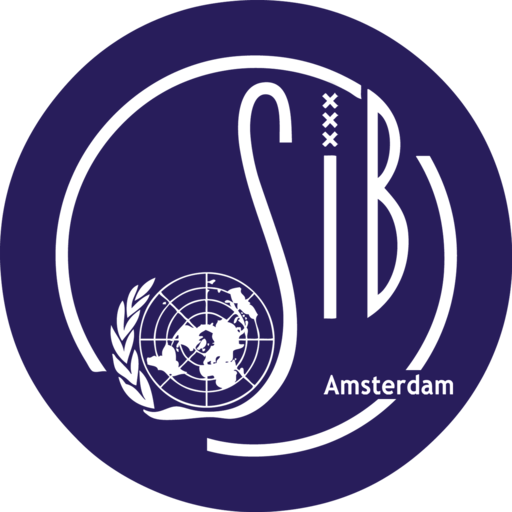Report: Lecture: 'We do not negotiate with terrorists'
On Monday 2 May, SIB-Amsterdam organised a lecture on the perspectives on resolving conflicts with non-state actors. Before discussing the content of the lecture; two starting points need to be made. First, all governments claim that they do not negotiate with terrorists. Second, all governments negotiate with terrorists. Mr. Faltas explains why; governments simply have no other choice. On the one hand, admitting engagement with terrorists entails the assumption that terrorist acts are rewarded. On the other hand, not interacting with terrorists reflects the disinterest of politicians in their own citizens. Basically, it is a nasty situation where politicians are stuck in. You almost would sympathise with them.
The speakers elaborate on how to handle this situation. Mr. Faltas explains the core principles of negotiations. The idea behind this is that the talks needs to be effective, while ignoring the ethical aspect of it. Negotiation implies there is a dispute and the actors need to come together to an understanding. Mr. Faltas provides a list of characteristics that are relevant in the process of this, which includes: a joint effort, respect, common ground, transparency and much more. He also states that there are two types of negotiation: in good faith and in bad faith, the latter is doomed to fail. As prisoner’s dilemma occurs in talks with terrorists, a tit for tat game applies. How to solve this issue? The key answer is diplomacy. He justifies this by discussing the case of train kidnappings committed by Moluccans. The Dutch government solved this issue by inviting Moluccan communities for conversations to find out their grievances. Moreover, the government apologized to the South-Moluccans for the wrongs inflicted by government to them. Moluccans were moved by the gesture and the situation stabilized. He emphasized that diplomacy is not a guarantee that it will not happen again, but it did change something in the case of Moluccans.
In align with Mr. Faltas’s story, Mr. Dechesne agrees and elaborates on the upper hand of the pen on the sword. Especially important is to have the same language. This does not mean that we should all learn Arabic or Irish, but communicate on the same level to create a better understanding from both sides. He also addresses the complexity which comes with the label terrorist. The term creates a hierarchy between the two sides. It inflicts a process of ‘othering’ whereby the self is placed on a higher moral ground. This narrows the room for negations and subsequently decreases the effectiveness of it. Mr. Dechesne interviewed many prisoners of Daesh. Through interviewing these prisoners he came to a better understanding of the situation in living under the regime of Daesh, and people’s motivation to move to the region. He claims that by not negotiating with Daesh the West leaves a great opportunity. Like it takes two to tango; it takes two to make peace.
We had a great evening and learned a lot. Thanks to Mr. Falthas and Mr. Dechesne for the interesting evening!
